Maximizing your bathroom’s style, functionality, and value in 2025 starts with choosing the perfect bathroom shower doors. Today’s homeowners are moving beyond basic enclosures, seeking designs that offer a blend of minimalist beauty, advanced features, and personalized elegance. Whether you desire the open feel of frameless luxury, the privacy of textured glass, or a smart space-saving solution, this guide covers everything you need to know for a successful upgrade.
Shower Door vs Curtain: Why Glass Doors Are a Better Choice
While shower curtains have been a bathroom staple for decades, glass shower doors offer many advantages, especially in modern bathrooms. Glass doors provide a cleaner, more streamlined appearance and prevent water from splashing outside the shower area more effectively. This helps reduce slips, mold, and damage to bathroom floors.
Additionally, glass doors are more durable and easier to maintain in the long run. They don’t need frequent replacement like curtains, and many feature coatings that repel water spots and soap scum. For those looking to elevate the look and functionality of their bathroom, upgrading to a glass shower door is a smart investment.
How to Choose the Right Shower Door (Quick Comparison Table)
Making a quick, informed decision is key. This table helps you compare the most popular types of shower doors side by side to see which one fits your needs and budget.
| Door Type | Best For | Starting Price (Installed) | Key Benefits | Drawbacks |
|---|---|---|---|---|
| Frameless Glass | Modern, luxury, easy maintenance | $1,200 | Open look, boosts light, easy to clean | Higher price, professional installation needed |
| Framed Glass | Budget-friendly, traditional, durable | $700 | Lower cost, very sturdy frame | Can look bulky, tracks collect grime |
| Sliding/Bypass | Small bathrooms, tub/shower combos | $400 | Saves floor space, works with tubs | Tracks require more cleaning, rollers can wear out |
| Pivot/Hinged | Larger bathrooms, statement look | $800 | Wide opening, high-end feel | Needs clearance for the door to swing open |
| Frosted/Textured | Privacy, artistic design | $900 | Hides water spots, provides screening | Can make a small bathroom feel less open |
| Bi-Fold | Very small bathrooms, accessibility | $600 | Folds inward to save maximum space | More moving parts, simpler aesthetic |
Prices are 2025 US cost estimates for a standard installation; custom options will vary.
Shower Door Styles & Configurations Explained
Understanding the different styles of bathroom shower doors helps you match aesthetics with everyday function. Each configuration has a distinct visual impact and works best in certain layouts. Let’s explore the most popular shower door styles and types in 2025, including options for small bathrooms, luxury remodels, and budget-friendly upgrades.
Sliding (Bypass) Doors
These are a classic for a reason. Consisting of two or sometimes three overlapping panels that slide past each other on tracks, they are the go-to choice for shower-and-tub combinations or compact shower stalls where a swinging door isn't practical. A modern slider may feature minimal hardware for a cleaner look.
Pivot/Hinged Doors
A pivot or hinged door swings open like a standard room door, creating a wide, accessible entryway. This style is perfect for creating a grand entrance to a walk-in shower. It's important to measure your space carefully, as you need enough clear floor area for the door to swing open without hitting a toilet or vanity. The door hinges are a key component of its function and style.
Frameless Doors
The frameless shower door is the 2025 standard for modern and luxury bathrooms. Made from thick, durable tempered glass, these doors lack a bulky metal frame, creating a seamless, open, and airy look. This minimalist design makes your bathroom appear larger and brighter. A frameless glass shower door is also much easier to clean, as there are no tracks or frames to trap soap scum and mold. Frameless shower doors can be used even if your wall isn’t perfectly plumb. But If your wall is more than 1/4” out of plumb, consider a custom-fabricated glass door or an adjustable framed door system for a watertight fit—frameless glass cannot be cut on-site.
Framed Doors
Framed shower doors have a metal frame around the entire glass panel and door. This frame adds structural support, making it possible to use thinner, less expensive glass. While some find them less stylish than frameless doors, they offer excellent durability and are a reliable, budget-friendly option, especially for high-traffic family bathrooms.
Frosted/Patterned Glass
Want privacy without a shower curtain? Frosted, etched, or patterned glass is the answer. This type of glass door obscures the view into the shower while still allowing light to pass through. It’s a great way to add an artistic touch and can be very practical for hiding water stains from hard water.
Bi-Fold/Foldable Doors
For the tightest of spaces, a bi-fold door is a clever solution. It consists of two smaller panels connected by a hinge, allowing the door to fold inward on itself as it opens. This design needs very little clearance and is a great choice for small ensuite bathrooms or accessible shower designs.
Glass Options and Finishes
Glass: Beyond clear glass, you can choose from low-iron (for ultra clarity), frosted, tinted, textured, and even colored glass to match your decor.
Frame Finishes: The hardware and frame finish tie your shower into the rest of the room. Popular choices include polished chrome, brushed nickel, matte black, and oil-rubbed bronze. Consider pairing a matte black shower frame with matching faucets or hardware for a cohesive, modern look.
Glass Thickness for Shower Doors
Shower doors commonly use tempered glass in thicknesses ranging from 3/8 inch (10mm) to 1/2 inch (12mm). Thicker glass offers greater durability, a more solid feel, and often supports frameless designs better. For framed doors, thinner glass around 3/8 inch is typical and sufficient.
When selecting glass thickness, consider your budget and desired aesthetics. Thicker glass tends to be pricier but provides a premium look and longer lifespan, while thinner glass can help reduce costs and weight for easier installation.

Frameless vs Framed Shower Doors: Which One is Right for You?
When choosing a shower door, one of the first decisions is whether to go frameless or framed. Frameless shower doors feature thick tempered glass panels with minimal metal hardware, creating a sleek, modern look that visually opens up your bathroom. They tend to be easier to clean because there are fewer metal frames to collect soap scum and mold.
Framed shower doors, on the other hand, have metal frames around the glass panels which provide extra support and usually cost less. They’re often easier to install and more forgiving in bathrooms where walls may not be perfectly straight.
If you want a minimalist, high-end look and are willing to invest a bit more, frameless doors are ideal. For budget-conscious projects or older homes with uneven walls, framed doors can be a practical and durable choice.
Best Shower Doors for Small Bathrooms
If space is tight, your choice of shower door can make a big difference in usability:
- Sliding Doors: Ideal for bathrooms with limited clearance outside the shower since they don’t swing outward.
- Bi-Fold Doors: These fold inwards, saving space and providing wide entry access.
- Pivot Doors: Pivot doors open inward or outward on hinges but need enough room inside or outside the shower.
- Curved Shower Doors: Designed for corner showers, they maximize shower space while minimizing footprint.
Choosing the right door style can improve comfort and prevent cramped bathroom experiences.
Comparing Features from Leading Manufacturers
When selecting a shower door, different manufacturers focus on different strengths. Instead of looking at brands, consider what type of features matter most to you. This table breaks down what you can expect from different types of providers.
| Manufacturer Focus | Innovation Highlights | Warranty Type | Customization Level | Est. Price Range | Unique Features |
| Smart Tech Innovators | Smart glass, integrated audio | Lifetime | High | $$$ | Push-button privacy glass, water-resistant speakers |
| Modern Design Specialists | Trend-forward styles, easy DIY | Limited | Medium | $$ | Wide range of modern designs, simplified install kits |
| Custom Size Experts | Custom sizing, durable frames | Lifetime | High | $–$$$ | Perfect for odd-sized openings, both framed & frameless |
| Artistic Craftsmanship | Unique glass textures, eco-focus | Limited | Medium | $$$ | Ultramodern looks, sustainable materials |
| Designer & Spa Feel | European styling, spa features | Limited | Medium | $$–$$$ | Etched glass patterns, hydro-repellent coatings |
Always check the specific warranty and features with your chosen supplier or contractor, as offerings can vary.
Measuring & Installing Your Shower Door
Proper measurement and installation are critical for a functional, leak-free shower enclosure. Getting this part wrong can lead to serious problems down the line.

How to Measure Correctly
Accuracy is everything. Always use a rigid metal tape measure for the best results.
- Width: Measure the width of your shower opening at the top, middle, and bottom. Walls are rarely perfectly straight. Use the smallest of these three measurements when ordering your door.
- Height: Measure the height from the top of the shower curb or tub edge to where you want the top of the door to be.
- Check for Plumb: Use a level to see if your walls are straight up and down. If they are "out of plumb," you may need a frameless door that can be cut to fit the angle or a framed door with an adjustable frame.
Professional vs. DIY Installation
Deciding whether to hire a pro or DIY is a major consideration.
- Professional Installation: This is strongly recommended, especially for a frameless glass shower door. A professional installer has the tools and experience to handle heavy glass, ensure a perfect fit, and create a watertight seal. This helps prevent water leaks and ensures the safety of the heavy tempered glass panels.
- DIY Installation: A DIY approach is possible for simpler framed shower doors or sliding door kits if you are an experienced home improver. However, the risk of error is high. An incorrectly installed door is likely to leak or may not close properly.
Avoiding Common Installation Mistakes
Here are three common pitfalls to avoid during a shower door installation:
- Ignoring Out-of-Plumb Walls: Failing to measure wall straightness can result in a large, uneven gap between the door and the wall.
- Skipping or Improperly Applying Sealant: Using the wrong type of caulk or not applying a continuous bead of clear silicone along the base and edges is a primary cause of water leaks.
- Misjudging Door Swing: For a hinged door, forgetting to a ccount for clearance can result in a door that bangs into your toilet or vanity every time you open it.
Maintenance & Cleaning Tips for Longevity
A beautiful glass shower door can stay that way for decades with a little care. Regular cleaning prevents the buildup of troublesome soap scum and hard water deposits. A well-maintained door can last up to 30 years.
- Daily: After each shower, use a squeegee to wipe down the glass. This simple, two-minute task is the single best thing you can do to maintain clarity and prevent water stains.
- Weekly: Clean the glass and hardware with a mild cleaner. A simple solution of white vinegar and water works wonders. Avoid abrasive cleaners or scouring pads that can scratch the glass or damage the finish on your hardware. Wipe down the tracks and hinges.
- Monthly: Inspect the door's seals and sweeps. These are the flexible vinyl strips at the bottom of the shower door and along the edges. If they are brittle, cracked, or compressed, it’s time for a replacement.
- Deep Cleaning: To tackle tough hard water buildup, you can use specialized glass cleaners or create a paste of baking soda and vinegar. Let it sit before gently scrubbing and rinsing.
One major benefit of frameless shower doors is their ease of cleaning. Without bulky frames and seals, there are fewer places for soap scum and grime to accumulate. Many frameless doors are also treated with water-repellent coatings, making water bead off quickly and minimizing hard water stains.
For framed doors, choosing models with smooth finishes and removable seals can help reduce maintenance effort. Regular squeegeeing after showers and using mild, non-abrasive cleaners will keep your shower doors looking pristine with minimal work.

Troubleshooting Leaks
What do you do if your glass shower door leaks? Don't panic. Here are a few common fixes.
- Check the Sweep: The vinyl sweep at the door’s bottom is the most common culprit. If it's worn out, water can easily escape. A replacement sweep is inexpensive and easy to install.
- Tighten the Hardware: Check if the door hinges or other hardware components are loose. A loose hinge can cause the door to sag, creating a gap.
- Reapply Silicone Sealant: If you notice a leak where the stationary panel or metal frame meets the tile or curb, the old silicone may have failed. Carefully remove the old caulk and apply a fresh, clean bead of 100% silicone to create a new watertight seal.
Budgeting & Cost Breakdown
How much does it cost to install a shower door? The price depends heavily on the type, size, glass thickness, and hardware you choose.
Typical Installed Price by Type:
- Sliding/Bypass: $400 – $1,000
- Hinged/Pivot: $800 – $2,000+
- Frameless: $1,200 – $2,300+
- Framed: $700 – $1,500
Labor Costs: Expect labor to account for 30–50% of your total project cost. A complex frameless shower door replacement or new installation will be on the higher end.
Custom Designs: Customizations like extra-tall glass, unique shapes, patterned glass, or smart features will add to the final price.
Investing in high-quality materials is worth the upfront additional costs. Cheaper hardware is prone to rust and corrosion, leading to a much shorter lifespan and potential defect issues. A professional installation ensures your investment is protected and functions correctly for years.
Real-World Customer Experiences
Across home improvement forums and social media, a few common themes emerge. Many homeowners share stories of their upgrade from an old shower curtain or a dated framed door to a new frameless model. The most common praise is for how a frameless shower visually opens up the entire bathroom, making it feel larger and more luxurious.
However, there is also a word of caution. Many DIY attempts, especially with frameless doors, result in frustration. The most common complaints are about a persistent leak at the bottom of the shower or a door that won't align properly. The consensus is clear: for a project like this, hiring an experienced installer is the best way to avoid headaches and ensure a perfect result.
Sustainability & Safety in Modern Shower Doors
Modern bathroom shower doors are designed with more than just looks in mind.
- Eco-Friendly Materials: Many manufacturers now offer products made with recycled glass and aluminum. You can also find finishes that are applied using processes that release fewer volatile organic compounds (VOCs), which is better for your home’s air quality.
- Safety Is Standard: All reputable shower doors are made from tempered glass. This type of safety glass is designed to shatter into small, dull-edged pieces if it breaks, greatly reducing the risk of injury.
- Healthy Home: The smooth surfaces of a frameless glass door and water-resistant hardware help prevent the growth of mold and mildew. With no deep tracks or frames to trap moisture, it's easier to keep your shower clean and hygienic, protecting your family’s health.
Conclusion: 2025’s Best Bathroom Shower Doors—Choose with Confidence
The right bathroom shower doors can transform your space, adding style, function, and value. In 2025, the trend is toward clean lines, personalized features, and long-lasting quality. While a frameless glass design offers a sleek, modern aesthetic, the most important decision you can make is to prioritize a professional installation and commit to simple, regular maintenance. By doing so, you ensure your new shower door will remain a beautiful and functional centerpiece of your bathroom for years to come.
FAQ
1. Which type of shower door is best?
The "best" door depends entirely on your bathroom's layout, your budget, and your style. A frameless shower door is best for a modern, open look and easy cleaning. A sliding door is best for saving space and for tub/shower combos. A framed shower door is best for durability on a tighter budget.
2. What are the disadvantages of glass shower doors?
The biggest disadvantage of glass shower door is expensive, especially frameless style. And daily use to be diligent, three days on two days to wipe once, or water stains, soap scum paste everywhere, look particularly bad. What's worse, if the installation is not careful, such as sealant did not play well, screws did not tighten, late leakage is like a common occurrence, once the leak up, not only repair the trouble, but also may be around the walls, cabinets bubble bad.
3. Do all glass shower doors leak?
Good quality shower door as long as the installation is in place, it will not leak. If you find water leakage, nine times out of ten is not good when installing, such as sealing strip is not tight, or use a long time sealing strip aging and cracking, and then the door frame, glass and tile joints did not hit the glue seal. Usually pay more attention to the maintenance, regular inspection of these problematic places, you can avoid the trouble of water leakage, or really leak up, wall moisture, moldy tiles, deal with it can be enough to toss.
4. How do you keep water from leaking under a glass shower door?
If you want to keep the shower from leaking, these are a few places you have to keep an eye on. First check the bottom of the vinyl baffle, if broken, loose, the level will seep out along the seam, must ensure that it is intact, solidly affixed to the edge of the shower. Then look at the edge of the shower, it's best to have a little inward slope so that the shower water flows smoothly into the drain and doesn't pool in the corners and wreak havoc. Finally, the glass or frame and the edge of the connection, be sure to play on the neat and dense silicone, the gap blocked tightly, waterproof rely on this line of defense, a little less can not be.
5. How often should glass shower doors be replaced?
A high-quality glass shower door, whether framed or frameless, can last 20 to 30 years. The hardware, such as hinges and rollers, and the vinyl seals will likely need replacement sooner, perhaps every 5-10 years, but the tempered glass itself is incredibly durable.

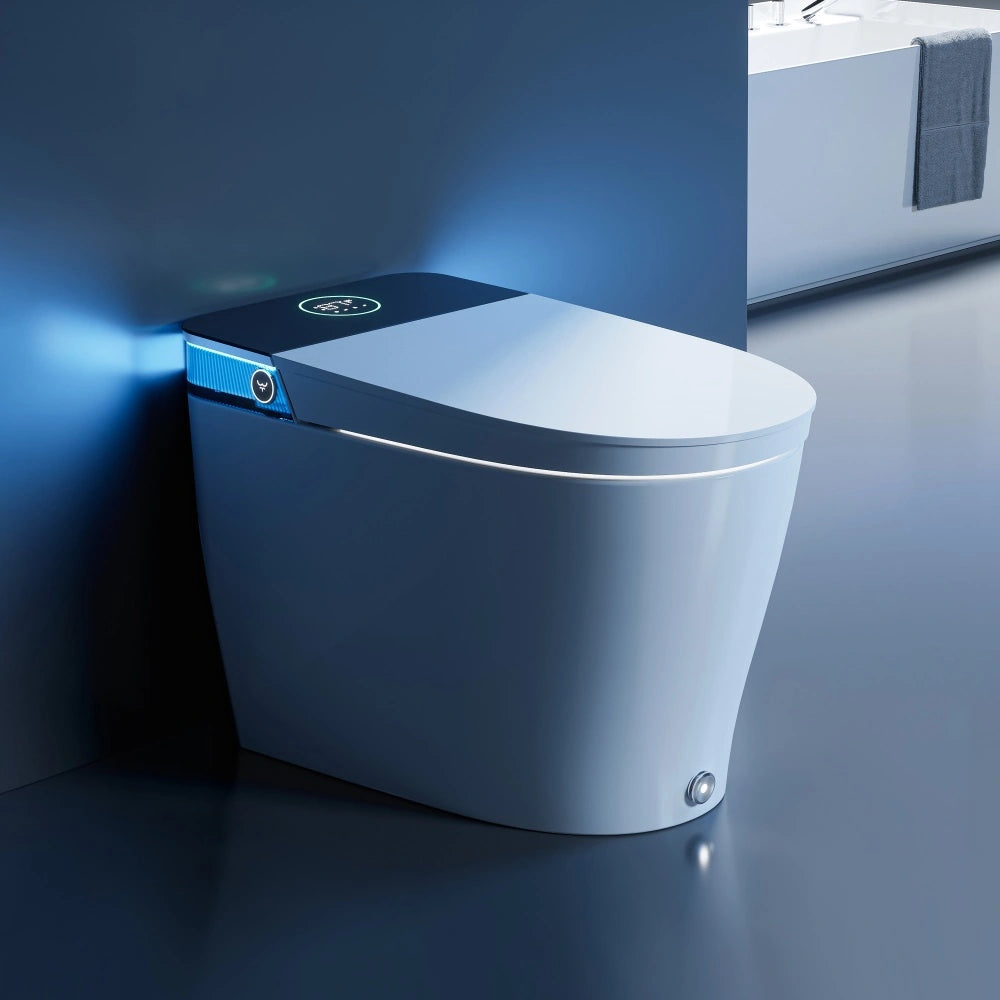
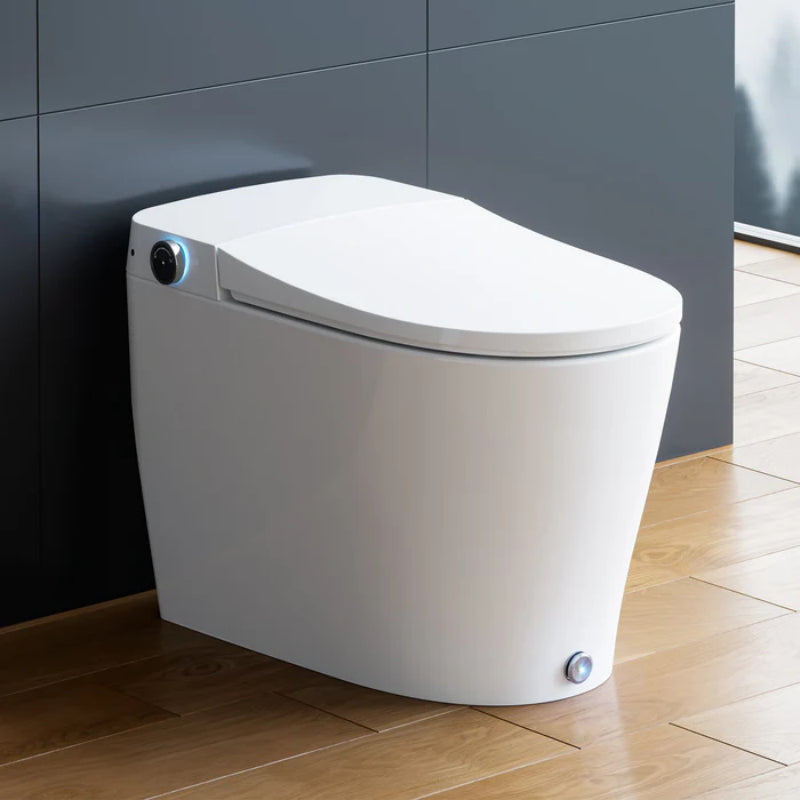
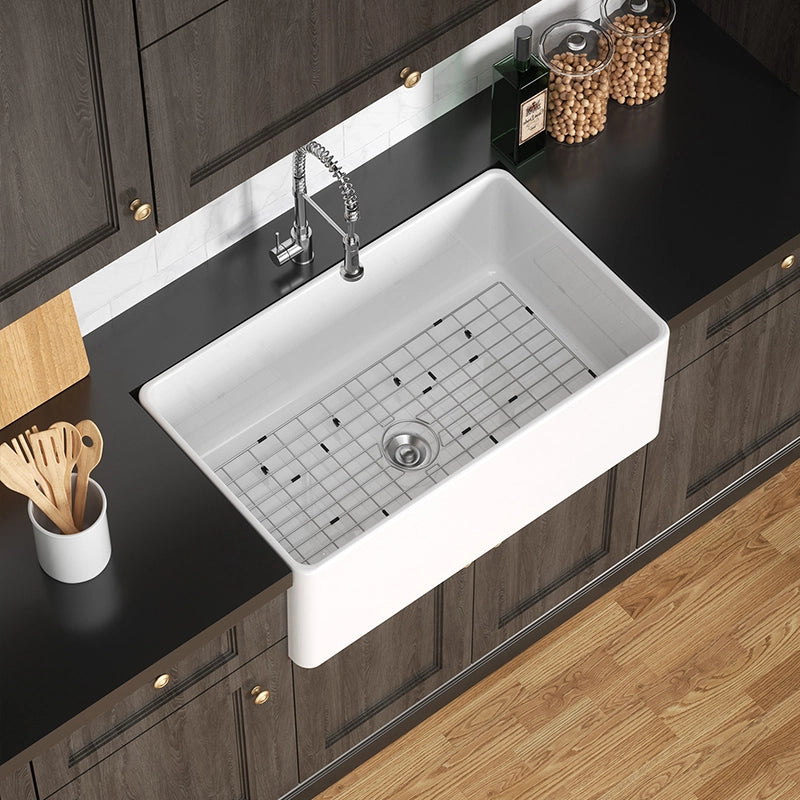
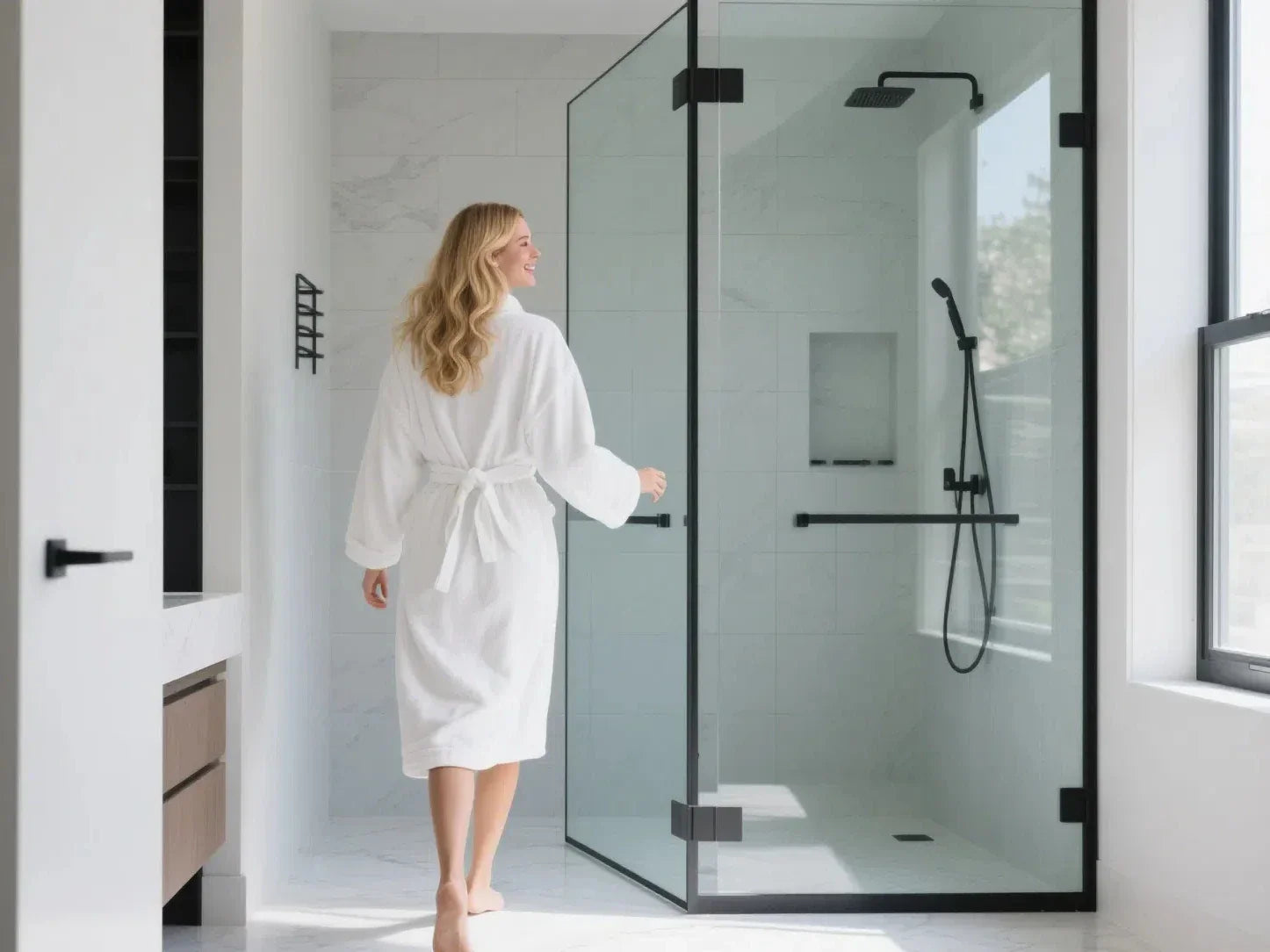
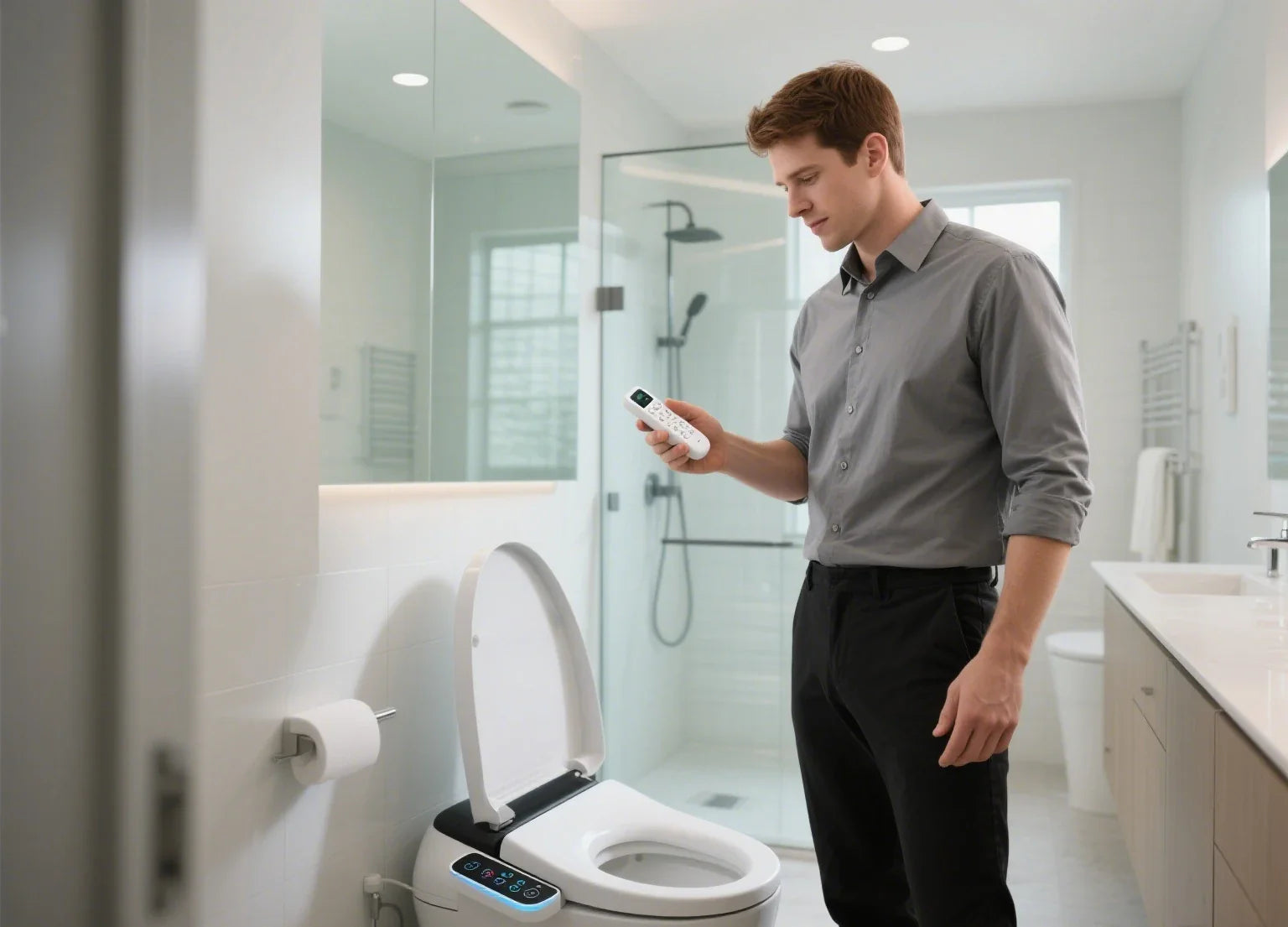


Leave a comment
This site is protected by hCaptcha and the hCaptcha Privacy Policy and Terms of Service apply.